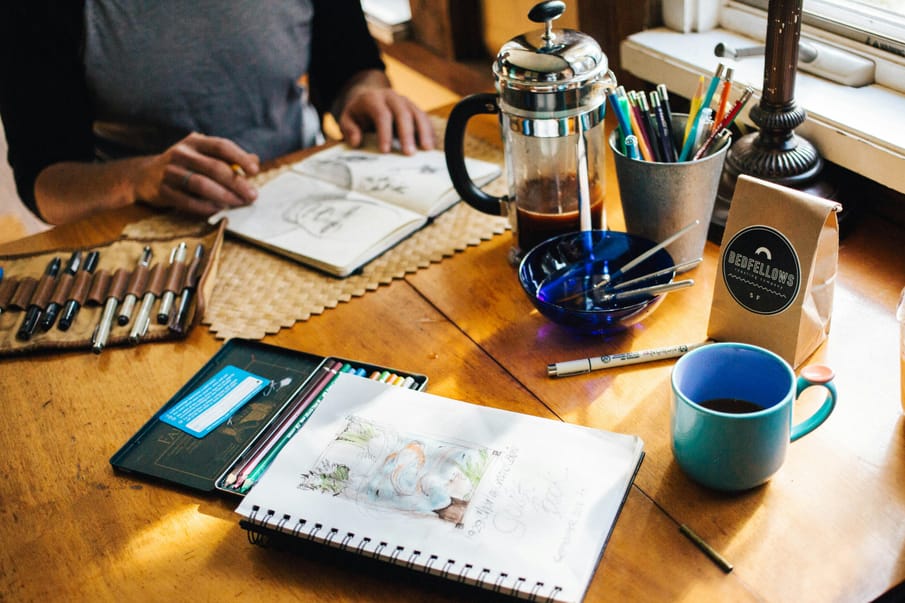Many of us struggle to find a hobby we genuinely enjoy, here we explore the latest ‘energising hobbies’ trend and how to find one that works for you
When meeting someone new, one of the first questions we're often asked is, “What are your hobbies?” Cue the sudden panic and mind blank...Does Netflix count? The truth is, for many of us, finding and maintaining hobbies can sometimes feel like a challenge. Demands from work, family responsibilities, and daily commitments can leave little time and energy for exploring new hobbies or nurturing existing ones.
‘Energising hobbies’ is all about breaking away from repetitive routines and instead engaging in activities that spark joy and creativity. The term has gained popularity after TikTok creator and psychotherapist Israa Nasir highlighted the benefits in a viral video, referring to them as a "neuroscience-based happiness hack."
She notes that engaging in hobbies we truly enjoy triggers a sense of flow in our minds, allowing us to be fully immersed in the present moment. This flow is thought to increase dopamine, the neurotransmitter linked to happiness. When we find a hobby we are excited about, we activate the brain’s reward system, which can motivate us to stick with it.
What’s the difference between a regular hobby and an energising hobby?
The key difference between an energising hobby and a hobby, in general, is how it makes you feel when doing it, says clinical psychologist and author of Difficult People, Dr Rebecca Ray.
"Some hobbies can fill us with dread due to various factors such as unrealistic expectations, pressure to perform well, or a lack of genuine interest.” Israa explains that the beauty of discovering an energising hobby lies in the fact that its success isn't judged by performance, it's entirely up to the individual to decide whether an activity is fulfilling or if a different approach is needed.
Despite the name, energising hobbies don’t have to be active or physical. For example, activities such as Lego play can be both relaxing and mentally stimulating, puzzles can engage your brain in problem-solving, whilst knitting and crocheting can be meditative, helping to reduce stress and promote mindfulness. There’s no one-size-fits-all when it comes to energising hobbies, it’s all about finding something you genuinely enjoy.
How to find an energising hobby
1. Consider activities you enjoyed as a child
As we get older, it can be easy to lose sight of the joy that comes from exploring things we love. Israa notes that reconnecting with your inner child can help us rediscover the joy and curiosity that often get lost in adulthood. This could be picking up a particular sport you played as a child, dusting off that old guitar, or trying your hand at colouring and painting. Revisiting hobbies that you enjoyed as a child can be a great way to reignite passion and creativity.
2. Experiment
Don’t be afraid to try out different activities, even if you’re a total beginner. Sometimes, stepping out of your comfort zone can lead to unexpected passions and interests. For instance, you may consider taking a cooking class, starting that Etsy craft business you’ve been thinking about, or trying your hand at pottery or knitting. The key is to give yourself permission to explore a new hobby without the pressure of immediate success and finding what genuinely resonates with you.
3. Seek recommendations
Talk to friends, family, or colleagues about their hobbies and experiences. They may suggest something you hadn’t considered or introduce you to a new activity that aligns with your interests. For instance, someone may suggest a walking group that meets weekly, or a local art studio offering pottery classes. These recommendations can spark curiosity and inspire you to explore new interests.
4. Reflect on your experiences
Pay attention to how different activities make you feel. Which brings you the most joy or relaxation? Which ones feel more like a chore? Do you find yourself losing track of time while engaged in a particular activity? Use these reflections to help guide your decisions on which hobbies to pursue further. You could even keep a journal to note your experiences and feelings as you try different activities.
5. Work with a coach
Starting a new hobby often requires a bit of confidence. Many of us may hesitate to try new things, often due to fear of failure or a lack of confidence. While a coach won't choose a hobby for you, they can assist you in recognising activities that would bring fulfilment, support you in overcoming fears, and build the confidence needed to take the first step. Balancing a hobby with other commitments such as work can often be difficult, by working with a coach you can better understand what you'd like to prioritise and how you can make time for what's important to you.
To find out more about why hobbies are important and how working with a coach can help, visit Life Coach Directory.


Comments